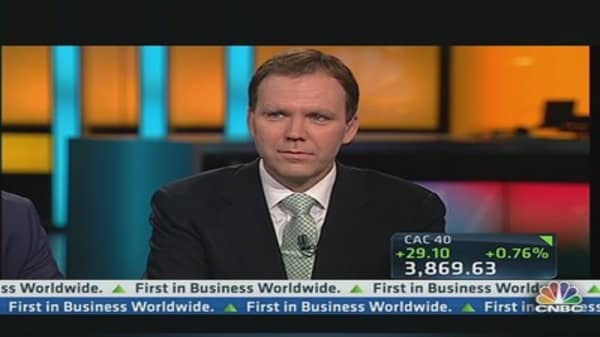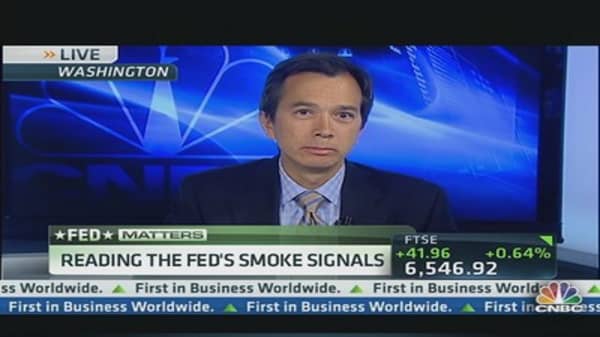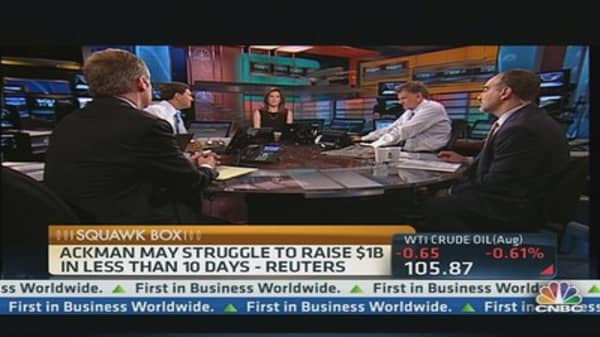If at first you don't succeed...
Federal Reserve Chairman Ben Bernanke has taken another stab at explaining how the central bank views the economy and what that means for future Fed action.
At an economic conference after the stock market closed Wednesday, he said the economy continues to need highly accommodative monetary policy for the "foreseeable future."
In early trading Thursday, stocks were sharply higher after Bernanke's comments, which served to again draw a distinction between the Fed's near-zero interest rates and its $85-billion-a-month bond-buying program.
(Read More: Bernanke: Highly Accommodative Policy Needed for 'Foreseeable Future')
"He's not taking back the tapering talk," Jim O'Sullivan, chief U.S. economist at High Frequency Economics, told CNBC on Thursday. "But he's emphasizing again and again, tapering is not tightening."
"We're a long way away from tightening," because tapering asset purchases would still represent continued buying, O'Sullivan said in a "Squawk Box" interview. "Ultimately, this is not a bad environment for the stock market."






